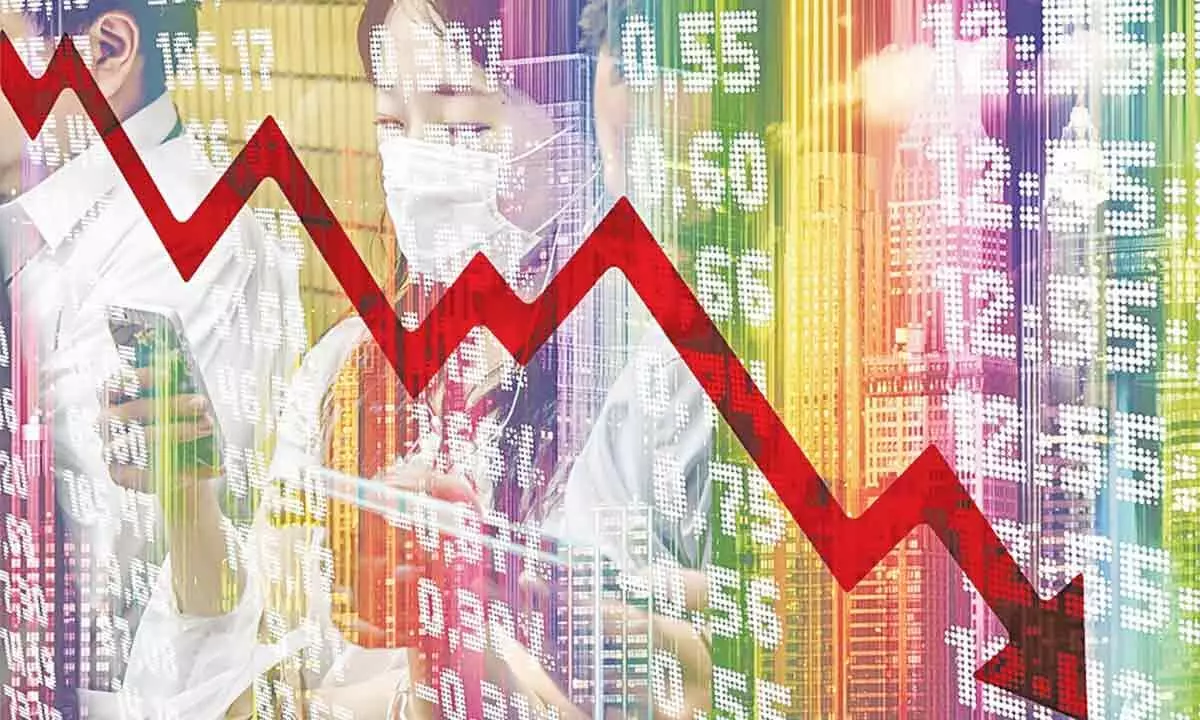Musing on volatility of financial markets

Over the years, financial markets have grown used to expecting the unexpected. Almost any passage of time in the history of financial markets is replete with events which have taken market participants by surprise.
Over the years, financial markets have grown used to expecting the unexpected. Almost any passage of time in the history of financial markets is replete with events which have taken market participants by surprise.
However, it would be fair to say that 2020s have just taken this to an altogether different level. In a lighter vein, one could wonder how the first quarter of last few years has made it a habit of making a mockery of beginning-of-year forecasts. While 2020 was a year which began under the looming threat of geo-political tensions between US and Iran; by the end of the first quarter, the thing that had turned the world upside down was, after all, a virus. At the start of 2022, while all eyes were on the spread of Omicron; by the end of the first quarter, the event that actually shook everyone was a geopolitical one (Russia-Ukraine war).
However, what's worth remembering is that if one goes by history, the world will not only find a way to tide over this crisis but would also come up with game-changing ideas along the way. Looking back at Covid and its repercussions, as things stand, next few years could actually define the course of history for a prolonged period of time. First few months of this ongoing conflict have already shown that going forward there could be less reliance on physical warfare and more on the economic one.
This, in turn, could result in formation of newer economic blocs and change the course of globalisation as we know it. Supply chains disrupted due to the pandemic have been further strained owing to the conflict and countries around the world are increasingly averse to the idea of economic dependence on countries with divergent security interests and differing ideologies. In this regard, India stands out as one of the natural alternatives to fill the void left on the front of food security, by Russia and Ukraine, and in manufacturing, by the post-pandemic China+1 tilt.
Apart from the threat to food security, another major fallout from the war has been the threat to energy security. The sharp spike in energy prices has had a crippling effect on many economies. Consequently, this could compel everyone to rethink how energy is produced and consumed; and more importantly, lay emphasis on reduction of dependence on fossil fuels. This, in turn, could accelerate tailwinds for renewable energy at a time when concern over climate change is already making the world sweat. It goes without saying that this change will not happen overnight as the immediate focus will be on energy security instead of clean energy.
For instance, the recent power crisis has made India turn once again to coal. Notwithstanding the recent softening of commodity prices; years of underinvestment may keep prices structurally elevated. Higher commodity prices, energy transition, supply chain re-alignment, along with the political desire for higher defence spending, by almost every country, could trigger a significant capex push.
In a side story of sorts, the fate of US dollar has become the cynosure of all eyes in the world of finance. Recent turn of events, coupled with the US' declining share in global trade and changing geo-political equations have raised apprehension about dollar's hegemony. However, the US dollar has benefitted from the apparent lack of alternative at this point in time. The relative preference of most countries to politically align with US, instead of an alternative like China, along with relative ease of access to American capital markets and a hawkish US Fed have aided the dollar's cause. All said and done, one may have to "reserve" one's judgement on the world's reserve currency for now.
India's sizeable forex reserves should help stave off significant threat to rupee stability. While India won't remain insulated from global developments, it continues to remain better positioned as compared to other emerging markets at this point. Rapid digitalisation, strong tax buoyancy (growth in tax collections nearly double that of Nominal GDP growth for FY22), services exports at record high (FY22), healthy balance sheets of corporates and banking sector, policy reforms, formalisation of economy and push for privatisation and capex hold India in good stead. On the flipside, key risks to watch out for happen to be the spike in commodity prices (particularly oil), impact of tightening global liquidity and increase in food and fertiliser subsidy bill.
For Indian equities, strong retail participation (63 per cent increase in demat accounts in FY22) and robust Mutual Fund flows have cushioned the downside from recent FPI selling spree. However, it's equally noteworthy how the last couple of years have been a baptism by fire for investors, as sharp gyrations in financial markets and numerous unforeseen events have kept investors on toes.
Considering rapidly evolving geo-political landscape, change in course of globalisation; and with Central Banks retreating into their role of reining in inflationary expectations instead of doing 'whatever it takes' to support asset markets, volatility is likely to remain elevated. Investors' equanimity and patience will continue to be tested in the foreseeable future but don't we know from history that the formula for wealth creation equates sound investment + time + patience.
In a world where new geo-political alliances are being formed and existing ones are being tested; sound financial plan and prudent asset allocation still continue to remain the best allies for investors to counter the formidable foe of volatility in financial markets.




